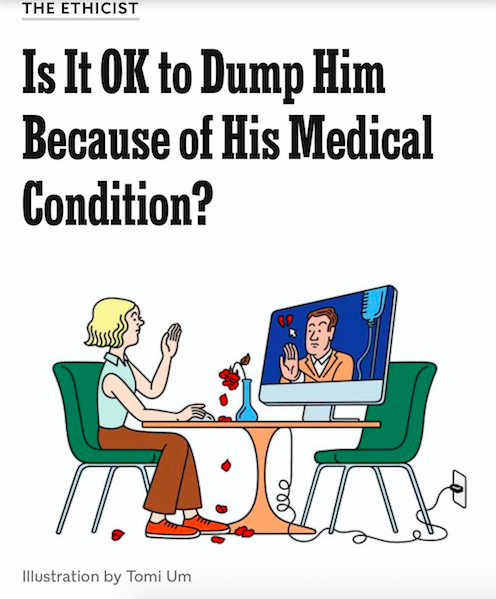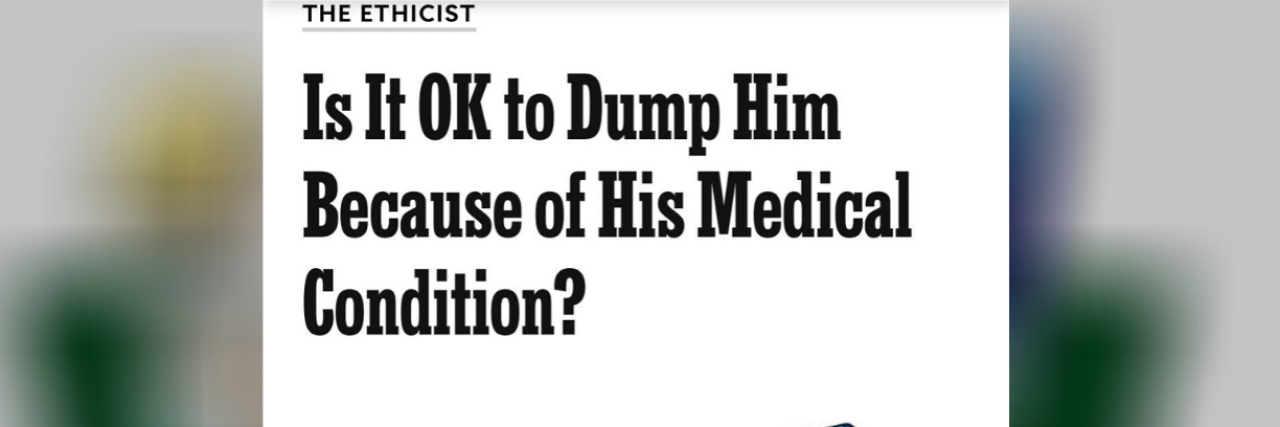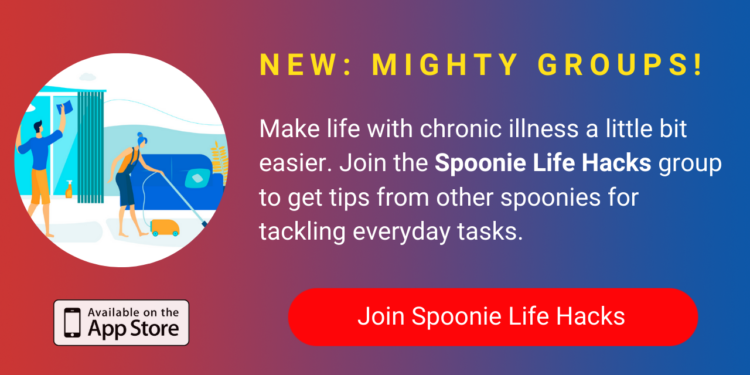Advice Column Slammed for Saying Dating Someone With a Disability Is a 'Burden'
In a New York Times Magazine column published online this week, a reader wrote in and asked one of their writers whether it was OK to dump a person because of their medical condition. The man this person had been seeing informed them that he had Crohn’s disease. From reading the column, it seemed that he was very open about what that meant for him and his health.
The writer insinuated two things in their response that I personally found to be extremely untrue. One, that if you get into a relationship with a disabled person, you’d be committing to a life as a caretaker. And two, entering that relationship would be a burden to you.
“You don’t owe it to anyone to accept that burden,” he actually wrote. “Indeed, if you think you don’t want such a life, you have a good reason not to enter into the relationship.”

His words quickly faced backlash on Twitter, where people have been using the hashtag #DisabledLoveIsBeautiful to speak up against the column.
Now, let me preface that I do not have Crohn’s. I in no way can fully understand how personally painful and frustrating it must have felt for someone who does have Crohn’s to read this column. However, I do know being painted as a burden is a sting felt widely across the disabled community.
Growing up, I had a first-hand account of witnessing a relationship between a disabled person and a non-disabled person. That relationship was my parents’.
Both my dad and I were born with osteogenesis imperfecta (OI), which is often referred to as “brittle bone disease.” The two of us have faced multiple fractures, surgeries and other medical complications related to OI.
Never has my mom made either of us feel like a burden due to our disability. Even in moments of insecurity and anxiety where I expressed that I felt like one, she was quick and genuine to soothe my worries.
My dad never saw my mom as his caretaker nor did my mom enter their relationship assuming that position. She took care of him as a partner would take care of their partner in any situation. She would help him when he needed it and he would do the same.
My parents’ relationship is only one example, though. I can’t speak for other relationships where one partner is disabled and the other is not. What I’m trying to express, however, is that the assumption of becoming a full-time caretaker when entering a relationship with a disabled person is harmful. Especially when it comes from an outside observer, like this writer. That kind of a conversation is one to be had between the two people in the relationship.
Personally, I have never been in a romantic relationship. Though, when it comes to the relationships I have with my friends and family, I’ve always been open about what I can do and what I may need assistance with.
Still, I have dealt with my own insecurities. I have repeatedly swallowed down a cocktail of ableism, internalized ableism and anxiety — the feeling of being a burden being the olive on the toothpick.
Do I know that it’s completely possible for me to be in a relationship? Yes. Do I know that I’m worthy of love? Yes. My parents’ relationship has helped immensely in those areas.
Even with those beliefs anchored deep down in my heart, reading that column was a fresh slap to the face.
I’m still hesitant to try dating apps. I still struggle with fully imagining myself in a relationship. My skin itches at the thought of being fully vulnerable. But, I continue to work through all of that because I know I’m worthy of love.
Seeing someone so easily express that dating a disabled person would be a burden stirred up a lot inside of me. It brought back my progress a few steps. But, reminding myself of how untrue their statement is brings me back to where I need to be.
Disabled people aren’t burdens. We are worthy of love. And if you think otherwise, then you don’t deserve a spot in our lives. You don’t deserve our love.


